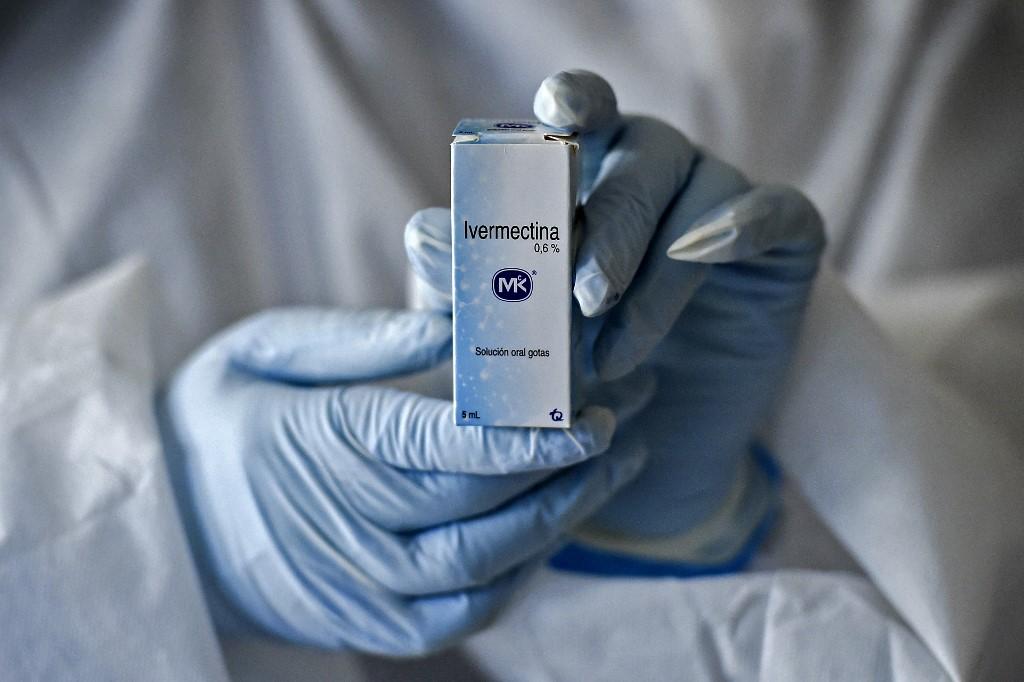Study supporting ivermectin as alternative Covid treatment pulled over fraud concerns
Study results endorsed ivermectin as a Covid therapy and were widely cited, but independent researchers have found glaring discrepancies in the data.
Just In
A preprint study “showing the positive efficacy and safety” of ivermectin – a drug used against parasites such as worms and headlice – in treating Covid-19, has suddenly been withdrawn without explanation.
The randomised control trial results and analysis, by research leader Dr Ahmed Elgazzar of Benha University in Egypt, were published on the Research Square website in November.
The study found that hospital patients with Covid-19 who “received ivermectin early reported substantial recovery” and that there was “a substantial improvement and reduction in mortality rate in ivermectin treated groups” by 90%.
The study was pulled from the Research Square website on Thursday due to unidentified “ethical concerns”.
A medical student in London, Jack Lawrence, was among the first to identify serious concerns about the paper when it was assigned to him by one of his master’s degree lecturers.
Lawrence discovered the introduction section appeared to be plagiarised.
The authors seemed to have run press releases and websites about ivermectin and Covid-19 through a thesaurus to change key words.
“Humorously, this led to them changing ‘severe acute respiratory syndrome’ to ‘extreme intense respiratory syndrome’ on one occasion,” Lawrence said.
The data cited also looked suspicious to Lawrence, as the raw data contradicted the study protocol on several occasions.
“The authors claimed to have done the study only on 18-80 year olds, but at least three patients in the dataset were under 18,” Lawrence said.
Many study dates and numbers turned out to be inaccurate according to the raw data. One patient supposedly left hospital on the non-existent date of 31/06/2020.
“The authors claim that four out of 100 patients died in their standard treatment group for mild and moderate Covid-19,” Lawrence said. “But according to the original data, the number was 0, the same as the ivermectin treatment group. In their ivermectin treatment group for severe Covid-19, the authors claim two patients died, but the number in their raw data is four.”
Lawrence and the Guardian sent Elgazzar a list of questions about the data, but did not receive a reply. The university’s press office also did not respond.
Lawrence contacted an Australian chronic disease epidemiologist from the University of Wollongong, Gideon Meyerowitz-Katz, and a data analyst affiliated with Linnaeus University in Sweden who reviews scientific papers for errors, Nick Brown, for help analysing the data and study results more thoroughly.
Brown uncovered numerous data errors, discrepancies and concerns, which he provided to the Guardian. According to his findings the authors had clearly repeated data between patients.
“The main error is that at least 79 of the patient records are obvious clones of other records,” Brown told the Guardian. “There are signs they have tried to change one or two fields to make them look more natural.”
Meyerowitz-Katz told the Guardian that it appeared to him the data was “just totally faked”.
The Elgazzar study has often been cited by proponents of the drug as evidence of its effectiveness, despite a peer-reviewed paper published in the journal Clinical Infectious Diseases in June finding ivermectin is “not a viable option to treat Covid-19 patients”.
Two meta-analyses of ivermectin, which combined results from multiple studies, had included the Elgazzar study in their results.
“Because the Elgazzar study is so large, and so massively positive – showing a 90% reduction in mortality – it hugely skews the joint evidence in favour of ivermectin,” Meyerowitz-Katz said.
“If you get rid of just this research, most meta-analyses that have found positive results would have their conclusions entirely reversed.”
Kyle Sheldrick, a Sydney doctor and researcher, also independently raised concerns about the paper. He found some numbers the authors provided “mathematically impossible”.
He said the completeness of the data further suggested possible fabrication, noting that in real-world conditions, this is almost impossible. He also identified the duplication of patient deaths and data.
Ivermectin has gained momentum across Latin America and India, largely based on evidence from preprint studies.
However, in March, the World Health Organization warned against the use of ivermectin outside clinical trials.
Lawrence told the Guardian that what started out as a simple university assignment had led to a comprehensive investigation into an apparent scientific fraud at a time when “there is a whole ivermectin hype, dominated by a mix of right-wing figures, anti-vaxxers and outright conspiracists”.
He said, “Thousands of highly educated scientists, doctors, pharmacists, and at least four major medicine regulators missed a fraud so apparent that it might as well have come with a flashing neon sign.
“That this all happened amid an ongoing global health crisis of epic proportions is all the more terrifying.”
Subscribe to our newsletter
To be updated with all the latest news and analyses daily.
Most Read
No articles found.
